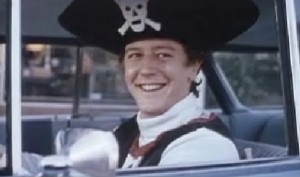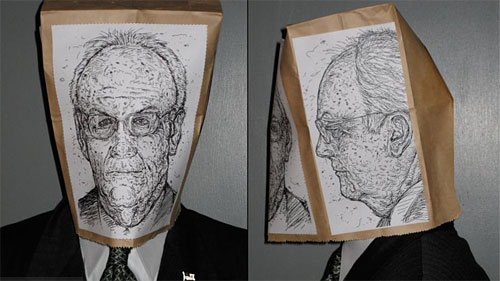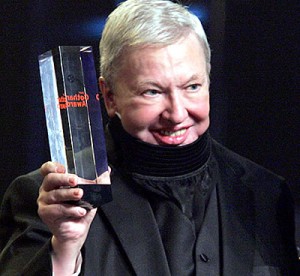This Just In: Poetry, Fiction & Literary Magazines Are Still Dying

A recent Mother Jones article by Ted Genoways, editor of Virgina Quarterly Review, suggests literature is dying because of the explosion of MFA programs and in turn, literary magazines and writers who look inward rather than outward in their storytelling. The really interesting conversation takes place in the comments where anonymous commenters and folks like Matt Bell and Gina Frangello both expand the discussion and take Genoways to task quite eloquently for his myopic and rather privileged outlook from within academia and his willful ignorance of the independent publishing community.
I have said it before but I will say it again. I remain weary of the ongoing, lofty prognostications about the death of literature, literary magazines, the printed word and so on. The conversation is getting so very tedious. Literature is dying the longest death in the history of deaths. It is amazing, really. If literature is dying, it is now time for a mercy killing so we can bury the dead, allow the dead to rest in peace, and surrender to the five stages of grief. I will never understand why magazines continue to publish articles which look backward rather than forward, in no way cover new ground or offer practical solutions that are grounded in hope rather than pessimism.
January 18th, 2010 / 6:21 am
The School
 At The School the creative writing undergrads will be allowed to write only about their hobby. Homework assignments will go like this: “Go home, and do your hobby.” Readings will include rule-books (if your hobby was boccie, etc) or instruction manuals (if your hobby was creating birdhouses out of Q Tips, etc). If you have no hobby, you are immediately expelled from The School.
At The School the creative writing undergrads will be allowed to write only about their hobby. Homework assignments will go like this: “Go home, and do your hobby.” Readings will include rule-books (if your hobby was boccie, etc) or instruction manuals (if your hobby was creating birdhouses out of Q Tips, etc). If you have no hobby, you are immediately expelled from The School.
Grad students in creative writing at The School will be allowed to write only about their job. Homework assignments will go like this: “Go home, and do your job.” Readings will include employment manuals (if your job was lifeguard at city pool, etc), local maps (if your job was delivering various types of paper, etc), or instructional material (if your job was to monitor the unloading of industrial chemicals from train tankers, etc). If you have no job, you are immediately expelled from The School.
Workshop will take place in the pond. The students will sink or swim, in silence.
Economist on anonymous

Many hands write The Economist, but it speaks with a collective voice. […] And some articles are heavily edited. The main reason for anonymity, however, is a belief that what is written is more important than who writes it. As Geoffrey Crowther, editor from 1938 to 1956, put it, anonymity keeps the editor “not the master but the servant of something far greater than himself. You can call that ancestor-worship if you wish, but it gives to the paper an astonishing momentum of thought and principle.”
Around the Web
httpv://www.youtube.com/watch?v=3mDbNYqio1g&
There’s a new issue of the Home Video Review of Books. The above clip is the middle installment of the HVRB’s three-part review of We Take Me Apart by Molly Gaudry. Also reviewed in this issue: Graham Foust, Angela Veronica Wong, Brenda Ijima, and more.
Don’t forget The Rumpus Sunday Books Supplement. Direct your attention especially to Elissa Bassist’s Imaginary Interview With Elaine Showalter.
Jezebel takes a look at Best Sex Writing 2010, edited by Rachel Kramer Bussel.
Another standout is Betty Dodson’s “Sexual Outlaw,” about her post-menopausal discovery of a lesbian S/M support group: it’s both a powerful refutation of the notion that women over 50 aren’t sexy, and a sexy exploration of the idea that fucking is all about power. And Janet Hardy’s “The Portal,” about fisting, fingering, and general vagina appreciation, is dirty fun (example: “I do, however, like men. And since they don’t have cunts, we use mine.”).
Slate’s Troy Patterson says “Conan should have seen it coming.” Patterson also offers a Top 10 list of “fun facts” about the history of the Late Night wars.
4. When it seemed possible that Letterman might unseat Leno from Tonight, Leno consciously used monologue jokes about his relationship with NBC as part of a PR campaign, painting himself as a victim. Last week, when he joked, “What does NBC stand for? Never Believe Your Contract,” he was actually stealing 17-year-old material from himself.
There’s a new issue of Diode!
Over at the NYTBR, meanwhile, Ned Vizzini reviews a YA novel, Walter Kirn something something Sam Shepard, and Edmund White really likes Frank Kermode’s new book about E.M. Forster. Also, our buddy Stephen Elliott has an essay at the Times about The D.I.Y. Book Tour. After the dismissive in-brief review his book got a few weeks ago, this might at first seem schizophrenic on the Times’s part, but I think the correct way to read this is as a sign of health: that one critic’s opinion doesn’t sour the whole institution’s relationship with a given author. The Times is commended for their multiplicity of views, and encouraged to maintain this position w/r/t reviewing my book, in light (or, hopefully, not in light) of what I said about their other critic yesterday. Also, since turnabout is apparently fair play over there, when’s the Dennis Cooper op-ed coming? I’ll hold my breath if you hold yours. Whoever passes out first gets their picture taken.
Oh, and Jeremy Schmall passed this along to me. “Lit 101 Classes in Three Lines or Less.” He said his favorite is the Paradise Lost one. I personally prefer the one for The Lion, The Witch and the Wardrobe.
January 17th, 2010 / 1:24 pm
Finally, all Borges fiction collected. Like your kidneys, a local library, or a reliable bowl–this you need. [Edit–it has been out 10 years] [Edit–beer] [Edit, still read it, though.]
Take a Saturday evening—or make a bookmark for tomorrow’s hangover—to read the new Collagist, featuring the Gabriels Blackwell and Durham; the four names of Mary Jo Firth Gillett; the three names of Tina May Hall, Emily Kendal Frey, Reginald Dwayne Betts, and Alan Michael Parker; another Parker named Jeff, who’s called in to introduce that classic double punch of P’s, Mister Padgett Powell; and a bunch of other people who don’t fit into the moronic cleverness of the earlier clauses, including: Doug Ramspeck, Jennifer S. Cheng, Anna Clark, John Madera, Stacy Muszynski, and Angela Stubbs. Good stuff. Kudos to Matt Bell for another great issue!
I should be writing…
Because you’re obviously not writing right now, what ARE you doing?
Let Us All Stop What We’re Doing for a Minute to Recognize the Awesomeness of Roger Ebert
 Roger Ebert has apparently been blogging for the Chicago Sun-Times. Who knew–or cared? I would have said “not me.” But then a friend forwarded me this post of Ebert’s about losing the ability–over the course of his battle with cancer–to eat and speak. “Nil by Mouth” is an incredible piece of writing. Ebert begins by detailing his situation, but the piece quickly becomes a meditation on memory, experience, repetition and loss. It’s an astonishing and impressive piece of writing. Will I go so far as to call it a Proustian reverie? Why the heck not?
Roger Ebert has apparently been blogging for the Chicago Sun-Times. Who knew–or cared? I would have said “not me.” But then a friend forwarded me this post of Ebert’s about losing the ability–over the course of his battle with cancer–to eat and speak. “Nil by Mouth” is an incredible piece of writing. Ebert begins by detailing his situation, but the piece quickly becomes a meditation on memory, experience, repetition and loss. It’s an astonishing and impressive piece of writing. Will I go so far as to call it a Proustian reverie? Why the heck not?
I dreamed. I was reading Cormac McCarthy’s Suttree, and there’s a passage where the hero, lazing on his river boat on a hot summer day, pulls up a string from the water with a bottle of orange soda attached to it and drinks. I tasted that pop so clearly I can taste it today. Later he’s served a beer in a frosted mug. I don’t drink beer, but the frosted mug evoked for me a long-buried memory of my father and I driving in his old Plymouth to the A&W Root Beer stand (gravel driveways, carhop service, window trays) and his voice saying “…and a five-cent beer for the boy.” The smoke from his Lucky Strike in the car. The heavy summer heat.For nights I would wake up already focused on that small but heavy glass mug with the ice sliding from it, and the first sip of root beer. I took that sip over and over. The ice slid down across my fingers again and again. But never again.
It’s a long piece. But my guess is that once you start it, you won’t want to stop. Also, this apparently wasn’t just a one-off strike of awesome. I’m now deeply immersed in the most recent post, “Making Out is its Own Reward,” in which Ebert remembers the days of universities acting in loco parentis with regard to attempting to enforce student-abstinence, the first time he ever saw a gay kiss in real life, and a whole host of other fascinating memories and bits of half-lost history. He tops things off with a selection of YouTube videos about how to kiss, how to make out, and related concerns. In the clip below, two Asian girls sitting on a flight of stairs teach you how to make a move in a movie theater.
httpv://www.youtube.com/watch?v=xMcI5eMs1JY&
Roger Ebert! Our awareness of your awesomeness is belated, and we apologize. We will be paying attention from now on. Cheers!

